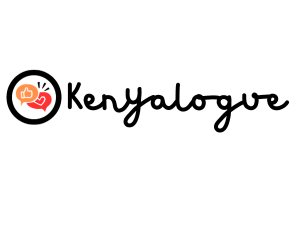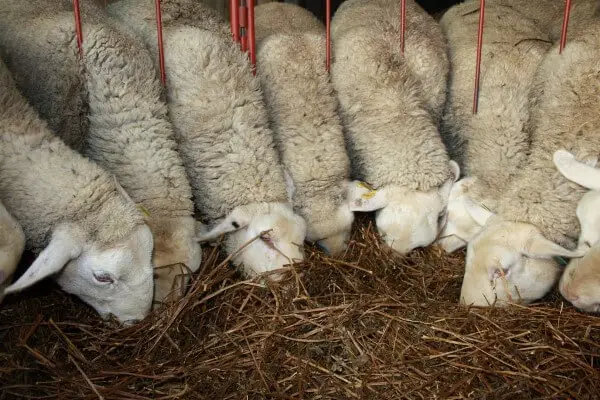Sheep farming in Kenya is taking a new turn as zero grazing becomes a popular farming method.
For those unfamiliar with the term, zero grazing involves keeping sheep in confinement and providing them with a specific diet.
The idea is to maximize the sheep’s productivity while minimizing grazing costs.
However, some farmers are still on the fence about whether this approach is feasible and profitable.
That’s where we come in. In this blog post, I will explore some of the most important aspects you need to know about zero-grazing sheep farming in Kenya.
Let’s dive right in…
Space Requirements
When keeping sheep confined instead of allowing them to graze freely, the number of sheep that can be kept per acre is limited due to restricted movement.
To ensure the well-being and happiness of the sheep, a minimum of 10 square feet of space per sheep is required in their living and play area, and the surrounding fence must be tall enough to prevent escape.
The recommended number of sheep per acre ranges from 20 to 200, depending on various factors.
Keeping too many sheep on the land can lead to the spread of diseases among the flock, and the animals may have insufficient access to food, water, and space.
Feeding
Feeding is an essential aspect of zero grazing sheep farming.
Sheep require a balanced diet that includes roughage, concentrates, and minerals.
The recommended types of feed suitable for zero grazing include hay, silage, and concentrates.
- Sheep should be given 2 kg of silage per day, split into two feedings of 1 kg each in the morning and evening.
- Leguminous fodder, such as lucerne, is also necessary to provide protein and other nutrients to sheep. They should be given 500 gm of lucerne or leguminous fodder per day, once daily.
- Concentrate feed, which provides additional energy and protein, should also be included in their diet. Sheep should be given 200 gm of concentrate feed per animal per day, once daily.
- Mineral mixture is necessary to ensure that sheep receive all the essential minerals and trace elements they need.
- Sheep should be given 10 g of mineral mixture per animal per day, once daily.
Good nutrition is essential for the health and productivity of sheep. Adequate feeding also ensures that the sheep can produce good-quality meat and wool.
Costs
Keeping sheep confined in Kenya can be expensive due to various factors.
One of the most significant expenses is setting up proper housing for the sheep. This includes purchasing or building sheds, feed troughs, water tanks, and other equipment necessary for their well-being.
The cost of a high-quality shed that can house 20-30 sheep can range from Ksh. 50,000 to Ksh. 200,000.
Apart from the cost of housing, the price of feed is another major expense.
Sheep require a balanced diet of concentrate feed, leguminous fodder, mineral mixture, and silage.
The cost of feed can vary depending on its quality and availability in the local market.
In addition to these expenses, labor costs, veterinary care, and equipment maintenance costs should also be considered.
The sheep need proper care, including regular veterinary check-ups, and the equipment used to care for them must be well-maintained.
Zero Grazing vs. Extensive/Traditional Systems Compared
Benefits of zero grazing sheep compared to extensive/traditional system:
- Control over feed quality and quantity
- Reduced wastage of feed
- Less need for grazing land
- Reduced exposure to parasites and diseases
- Increased production due to better nutrition and management
- Easier monitoring and handling of sheep
Disadvantages/challenges of zero grazing sheep compared to extensive/traditional system:
- Higher initial capital investment for infrastructure and equipment
- Increased labor costs for feeding and cleaning
- Limited social interaction and exercise for sheep
- Need for regular cleaning and maintenance of facilities
- Dependence on external sources of feed
Is Zero Grazing Sheep Farming Profitable?
Zero grazing sheep farming in Kenya can be profitable if it is managed well and all necessary factors are considered.
Here are some of the key factors to consider:
I. Market demand
It is important to research the market demand for sheep products such as meat, wool, and milk in your area.
The market demand can fluctuate due to various factors, such as seasons and consumer preferences.
If the demand is high, you are likely to make more profits.
II. Cost of inputs
The cost of inputs such as feed, medication, and labor can affect the business’s profitability.
It is important to find ways to minimize these costs by sourcing affordable yet high-quality inputs.
III. Disease and pest management
Diseases and pests can lead to decreased productivity and increased treatment costs.
Implementing good management practices such as regular vaccinations, clean housing, and proper nutrition is important to prevent or manage disease outbreaks.
IV. Management practices
The success of zero grazing sheep farming in Kenya also depends on the management practices such as breeding, feeding, and marketing.
Proper breeding practices can ensure healthy and productive sheep, while feeding the right diet can maximize productivity.
Effective marketing strategies can help you sell your sheep products at a good price.
Final Thoughts
Like any other business venture, raising sheep for profit has risks involved.
Even if one takes all the necessary steps, like providing enough space, food, and water for the sheep, the weather or other factors beyond one’s control can lead to losses.
It is essential to seek professional advice from experts in the field, like veterinarians and agricultural specialists, to learn about best practices and any potential risks.
Implementing effective management strategies is crucial to running a profitable zero grazing sheep farming operation.
This includes keeping detailed records of all aspects of the business, closely monitoring the well-being of the sheep regularly, and developing a solid emergency plan for unexpected situations.
Taking these precautions can reduce the risks associated with sheep farming while maximizing profits.
Recommended For You:
Zero Grazing Goat Farming In Kenya: Key aspects, Costs, Benefits, Challenges, & Profitability
Galla Goats Farming in Kenya: Characteristics, Feeding, Challenges, and Profitability



